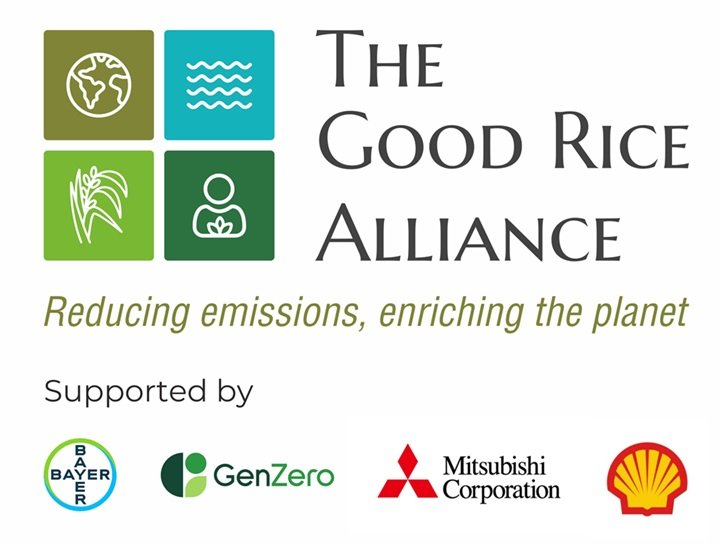Bayer, GenZero, Shell and Mitsubishi collaborate to empower rice farmers in India through TGRA
The alliance is empowering farmers to adopt climate-smart practices such as Alternate Wetting and Drying (AWD) and Direct Seeded Rice (DSR) to generate carbon reductions across 9 Indian states.
The Good Rice Alliance (TGRA), formerly known as the Sustainable Rice Carbon Programme, which is focused on advancing sustainable rice farming practices in India, has thus far enrolled more than 10,000 farmers in the program, covering over 25,000 hectares of farmland. It will reduce approximately 100,000+ tCO2e of methane emissions from rice cultivation, annually.
TGRA now aims to expand the program by adding nearly 8,500 hectares, streamlining the scientific measurement of GHG emissions from rice paddies and strengthening the farmer handholding and support system. The program will explore scale-up based on the experiences of the first two years of implementation. Currently, TGRA covers major rice-producing states in the country, like Andhra Pradesh, Bihar, Haryana, Karnataka, Odisha, Tamil Nadu, Telangana, Uttar Pradesh, and West Bengal.
Through TGRA, Bayer, a global enterprise with core competencies in the life science fields of agriculture and healthcare, in collaboration with GenZero, a Temasek-owned investment platform company dedicated to accelerating decarbonization globally, Shell Energy India Private Limited, a subsidiary of Shell Plc and investor in nature-based solutions and Mitsubishi Corporation, a global integrated business enterprise that develops and operates businesses which span numerous industrial sectors, are committed to reducing Green House Gas (GHG) emissions through sustainable agricultural practices in rice cultivation.
The program has also managed to reduce cost of cultivation of the majority of the enrolled farmers. In the first year, a scientific GHG measurement study was carried out in six different locations in the country.
Projections indicate that demand will continue to rise, reaching between 330 million and 1.5 billion tCO2e by 2030. The carbon offset platform industry in India is projected to grow at an impressive rate of 28 per cent annually, reaching a market value of US$ 68.5 million by 2033.
Simon Wiebusch, President, Bayer South Asia said, “At Bayer, our mission is to increase agricultural productivity with fewer resources while restoring ecological balance. At The Good Rice Alliance (TGRA) we emphasize that quality is the cornerstone of our mission, which aims to revolutionize rice cultivation practices. With most of the farmers experiencing tangible benefits from adopting regenerative practices, we are hopeful that our collaborative efforts will lead to the widespread adoption of environmentally friendly agricultural practices, fostering thriving communities of smallholder farmers nationwide.”
TGRA is armed with a Quality Management System, a farmer training, support and hand holding mechanism and a Monitoring, Report and Verification (MRV) mechanism which are in place to help maintain program integrity.
Through use of Total Quality Management (TQM) tools all plots are monitored at least thrice a month, to ensure real reduction in emissions is achieved. The alliance prioritizes high-quality implementation to deliver credibility benefits to farmers and is committed to incentivizing farmers financially while safeguarding the environment and improving farmer livelihoods. The program undergoes regular systemic checks, internal audits, and independent verification to ensure genuine emissions reduction.
Suhas Joshi, India Carbon Initiative lead at Bayer said “Increased scrutiny of voluntary carbon markets has highlighted the need for robust, high-quality projects. Achieving excellence requires more than inspiration. It demands perspiration, hard work, attention to detail, and a willingness to tackle the unglamorous tasks. At TGRA, we’re doubling down on the fundamentals of Total Quality Management.”
The alliance is empowering farmers to adopt


